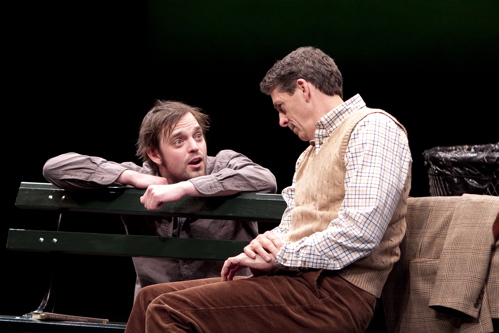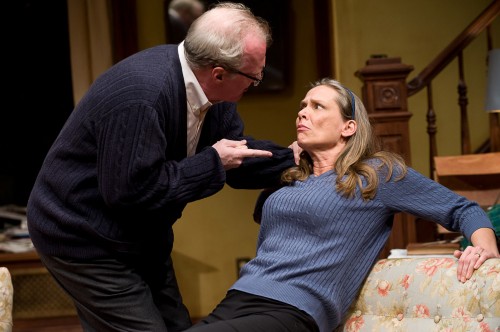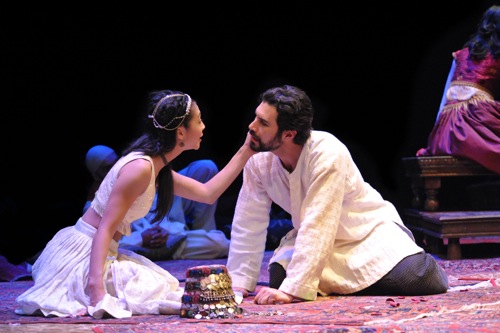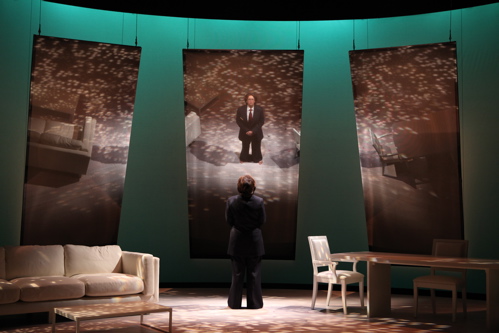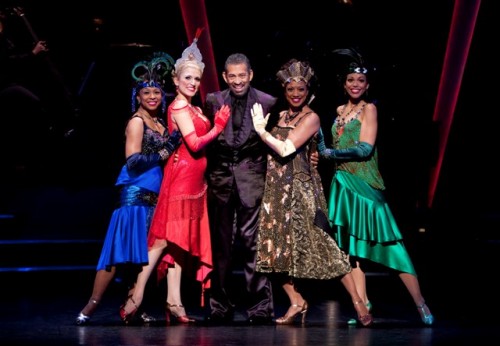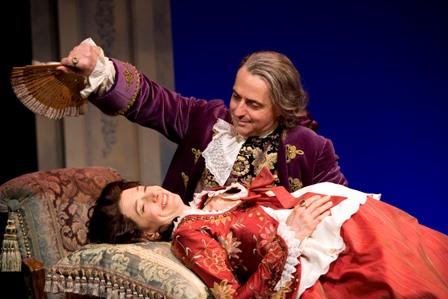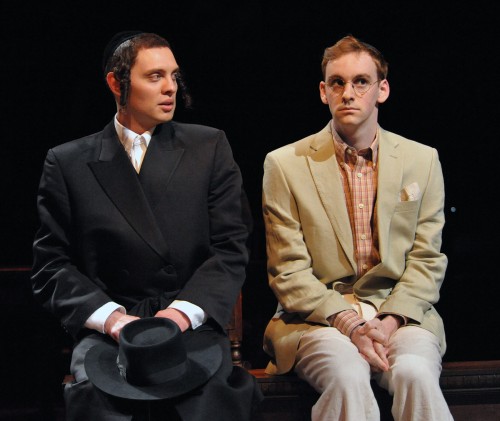
Joshua Morgan and Derek Kahn Thompson in Theater J's production of "The Chosen." Photo credit: Stan Barouh.
There’s something old-fashioned about Theater J’s production of The Chosen, presented with a quiet sensitivity in the staging and the acting, echoed in the warm wood of James Kronzer’s set. To call it old-fashioned is to by no means denigrate its power. It has a sepia-toned subtlety.
Theater J first produced an adaptation of Chaim Potok’s novel ten years ago, and is returning to it now under the aegis of Arena Stage. Setting a play of such intimacy in the airy round of the Fichandler is a bit of a risk – a play about the complicated relationships between fathers and sons requires a closer access than that large theater can provide, and sometimes I longed for the smaller confines of Theater J’s usual home. But it’s thrilling to see a company I’ve long admired in the gorgeous space by the waterfront, and it expands the audience capacity to see two Washington powerhouses – Edward Gero and Rick Foucheux – command the stage regardless of its size.
“Acquire a teacher, chose a friend.” This is the advice David Malter (Edward Gero) gives his son Reuven (Derek Kahn Thompson) as essential to start becoming a man. He’s just met his unlikely friend Danny (Joshua Morgan), after a baseball game that turned into a battle between Hasidic Jews and those Jews they consider “apikorsim” – heretics. Unbeknownst to Reuven, Danny has just met his unlikely teacher, Malter himself, whose reading suggestions include Freud and Darwin. Not exactly what his father Reb Saunders (Rick Foucheux) would want his son to be reading in preparation to become a “tzaddik” – the spiritual leader of his community.
The adaptation written and directed by Aaron Posner takes its time exploring the nuances between the four men, building to a shattering moment between a father and the son he raised in silence. Continue reading
